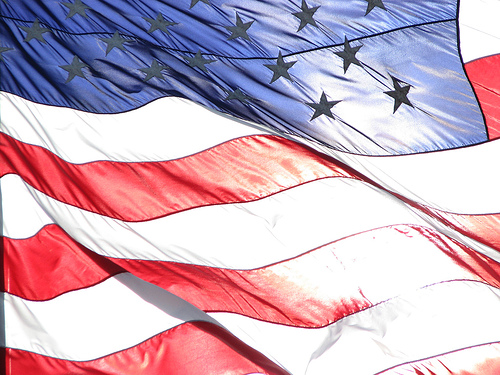Opponents spar whether U.S. is a Christian nation

 Two Baptist ministers squared off to debate the resolution “The U.S. Constitution neither establishes nor advocates for a Christian nation,” on campus late last month.
Two Baptist ministers squared off to debate the resolution “The U.S. Constitution neither establishes nor advocates for a Christian nation,” on campus late last month.
The Rev. Steve Kern, pastor of Olivet Baptist Church, argued that the U.S. Constitution intended to establish a Christian nation while Rev. Bruce Prescott, executive director of Mainstream Oklahoma Baptists and the opposition speaker, said the Constitution is neutral on religion.
Kern is the husband to Oklahoma State Rep. Sally Kern (R- Oklahoma City).
The debate drew an audience of more than 150 guests in the College Union Feb. 24.
Speaking before a predominantly older audience, both speakers had a small contingent of supporters that followed each of them to the debate.
Kern said the U.S. Constitution was founded on principles that helped the founding fathers frame the rights of Americans around Christian morals and beliefs. He went on to say that, historically, the U.S. has always attempted to draft its national documents with the notion that the overall inspirations were the tenets of Christianity.
Prescott argued that the architects of the Constitution deliberately avoided making Christianity the preferred religious faith. He said the pro-Christianity community has deluded themselves that the Constitution favors them.
“There has been reliance on the part of many Christians on the teachings of a generation of televangelists who want the United States to be a Christian nation so badly that they are willing to distort history to believe it,” Prescott said.
On occasion there were digressions away from the Constitution, including exchanges regarding the cultural identity of the U.S.
“The United States was designed to be a Christian nation because it would allow Christians to flourish within it,” Kern said.
“If the United States is not a Christian nation,” he continued, “why is it that elected officials swear an oath upon the Holy Bible?”
Prescott said using a Bible is incidental and unrelated to the Constitution.
“Nowhere in the United States is it mandatory that you use a Christian Bible,” Prescott responded
“We’ve had officials use a Qur’an. The authority of the oath lies in the oath taker’s personal beliefs — it isn’t a universal requirement that an oath be taken specifically either — the official may make an affirmation as to their duties if they so choose.”
Moore resident Patrick Hartley, 24, said he thought Prescott presented a stronger argument, but that conclusion may have been colored by his personal beliefs.
“As an atheist, this issue is important to me for many different reasons,” Hartley said.
“Before I came here tonight, I was unsure of how I felt about two Baptist ministers arguing the topic.
“But Rev. Prescott impressed me with his knowledge of American history and his ability to effectively convey his beliefs in a non-discriminating way.”
The debate was rapidly paced and precisely timed, giving little leeway for digression and audience interruption.
The Rev. Jim Shields, of the Interfaith Alliance of Oklahoma, moderated the debate and provided a detached but controlling hand over the proceedings as he ensured that neither of the speakers infringed too greatly upon his respective time limits.
“I believe we’ve lost sight of who we are and where we came from,” Kern said.
“I don’t believe our schools are teaching students a correct view of history but rather a ‘revisionist’ view of history and it overlooks the founding fathers’ original intent.”
Prescott said this topic is doubly important on college campuses where religious tolerance is important.
“It’s an important issue because, particularly on a college campus, you have people from all different faiths,” Prescott said.
“Understanding that we don’t live in a specifically Christian nation helps to promote tolerance in regard to the plurality of religions this country contains. It’s important that we allow every religion to feel as though they have a part in the identity of this country.”
However, at one point the debate seemed to degrade into a personal indictment of the growing “secularization” of America itself.
“Your eternal soul is dependent on Christ,” Kern vehemently declared as he began to hold up what appeared to be several different graphs showing statistics.
“Since prayer was removed from schools in 1963, we have seen an alarming rise in teenage pregnancy, unwed mothers, and a catastrophic drop in ACT scores.”
This was short lived however.
“This is not a debate about the religiosity of the American people,” Prescott responded, “but a debate as to whether the Constitution openly promotes a Christian nation — which it does not.”
The event was sponsored by Americans United for the Separation of Church and State.
A pre-debate poll was taken of the audience, asking whether they supported, opposed, or were undecided on the issue. It resulted in an almost 50-50 split between supporters and opponents with very few undecided.
After the debate concluded, a final poll was taken of the audience and the results remained almost exactly the same.